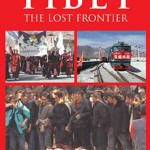The lifting of economic sanctions and the flow of substantial economic assistance are not for tomorrow”¦ Two concrete indicators of forward movement were the decision to re-establish full-fledged diplomatic relations at the Ambassadorial level and a token grant of US $ 2 million for health care and micro-credit projects.
China has already made no secret of its concerns over the decision of the Myanmar Government to suspend the construction of a big hydel power project by a Chinese company in the Kachin State to supply electricity to Yunnan. The Thein Sein Government has taken care to reassure Beijing that there will be no more reversals of past economic decisions of which China was the main beneficiary and that the closer relations with the US will not be at the expense of the primacy enjoyed by China in the Government’s strategic calculation. How to gradually reduce the dependence on China without seeming to do so is a question which would be constantly engaging the attention of the Thein Sein Government. Unless and until substantial economic assistance starts flowing in quickly, the Government will not be in a position to even contemplate any major change in its policies towards China.
The lifting of economic sanctions and the flow of substantial economic assistance are not for tomorrow. This became clear during the visit of Mrs.Clinton. Two concrete indicators of forward movement were the decision to re-establish full-fledged diplomatic relations at the Ambassadorial level and a token grant of US $ 2 million for health care and micro-credit projects.
Mrs.Clinton reportedly made the lifting of economic sanctions and the flow of economic assistance conditional on four steps being taken by the Thein Sein Government—the release of the remaining political prisoners, improvement in human rights, a peace process with the ethnic minorities and breaking-off of Myanmar’s relations with North Korea with a full accounting of the alleged assistance from North Korea in the nuclear field.
While the first three conditions should not cause any major problem to the Thein Sein Government, the last one relating to North Korea could. Would it cause concern in Beijing? What would be the reaction of the serving military officers to this condition? Would the US insist on the immediate implementation of this condition or would it be prepared to go slow on this keeping in view the sensitivity of this condition? These are questions to which clear-cut answers are not available.
| Editor’s Pick |
On the whole, the US has reasons to be gratified with the visit which went off without any friction and with signs of considerable mutual goodwill. Initially, Mrs.Clinton visited Naypyidaw, the State capital, for meetings with President Thein Sein and the Speaker of the Pyithu Hluttaw (Burma’s lower legislative house) Thura Shwe Mann. She then went to Yangon for two meetings with Suu Kyi.
“¦there would be no military coup or military government in the future and that there would be no reversal of the policy of democratic reforms.
While not many details were forthcoming of Mrs.Clinton’s 45-minutes talks with President Thein Sein, more details were available of her meeting with the Speaker, who seems to be playing an important role in the opening-up process. He was quoted by one of his colleagues as having told Mrs.Clinton that there would be no military coup or military government in the future and that there would be no reversal of the policy of democratic reforms.
Suu Kyi said after her meeting with Mrs.Clinton:”We are happy with the way in which the United States is engaging with us. It is through engagement that we hope to promote the process of democratization. Because of this engagement, I think our way ahead will be clearer and we will be able to trust that the process of democratization will go forward. We are prepared to go further if reforms maintain momentum. But history teaches us to be cautious. We know that there have been serious setbacks and grave disappointments over the past decades.”




